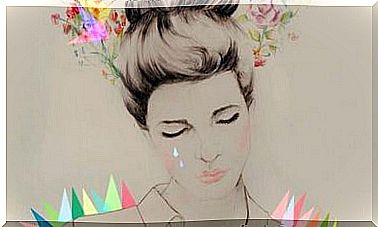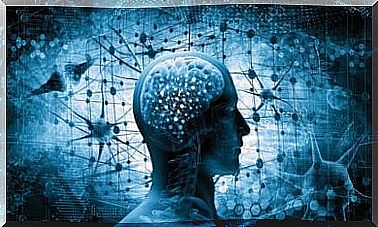How To Regulate Negative Emotions Effectively?

Have you ever wondered how you usually act when you feel bad? What if the behaviors you lead actually help reduce your discomfort? The reality is that sometimes we don’t know how to regulate negative emotions effectively or at least, if we do, we have a lot of room for improvement.
Let’s present an example: Who doesn’t know anyone who, after a painful breakup, wished to overcome the grief and anger they felt while spending their time drinking and going out? This person may have been able to turn away from the situation at first. But in the long run, did it help her to sort out anything or did she regain her well-being by putting into action other types of strategies?
Classification of the different ways of regulating negative emotions
Emotional regulation takes into account a set of processes. Through these, individuals exert an influence on their emotions, on when they feel them and on the way they experience and express them. In fact, it refers to our way of modulating emotions. This way of doing it may be adaptive (beneficial and functional) or unsuitable (dysfunctional). But, how do we know which ones help us and which ones, on the contrary, harm us?
Before answering this, it is necessary to know the different ways of regulating the emotions that we put into practice. On the one hand, we can try to regulate negative emotions by putting active strategies into action. Some of these strategies are positive reassessment of the situation, planning what to do, seeking personal development, trying to solve the problem or expressing what we are feeling.

On the other hand, we may resort to other, more passive strategies, such as conforming to the situation, reacting in a depressed manner, or leaving things as they are, without attempting to remedy the situation. situation. Finally, there are more distant strategies, in which it is a question of denying what happened, of taking a distance or of mentally disconnecting, or even of setting in motion palliative responses that attack the anxiety. and not the cause (like eating or drinking to feel better).
What ways of regulating negative emotions do not help us ?
Dysfunctional emotional regulation strategies make us more emotionally unstable, in addition to giving prominence to negative emotions and letting them stay with us. The results of this lack of regulation can be very diverse, but none of them are positive. We’re talking about anger, anxiety, or depression control issues, for example.
As we said previously, among this set of bad strategies we distinguish between distant strategies and passive strategies. When we feel bad, it is counterproductive to deny the situation. There is an exception when a new cause in us has a very strong emotional impact. In these specific cases, denial can serve as a wall of containment during the early stages of dealing with this emotional shock. However, even in these cases, we have to end up abandoning this strategy and resorting to other methods.
Thinking about the question over and over again won’t help us either, let’s focus on our situation and be satisfied with ourselves. Self-knowledge of our state, when it is negative, gives us the information we need to act. On the other hand, it turns into a danger for us when we fall into the temptation to stay in this situation and not react.
It is the same if we try to distract ourselves from what is going on by consuming alcohol, drugs, or overeating. All these strategies dispel the feeling of unease for a few moments. However, it is only a bandage that will peel off very quickly, so then we will need a larger one. The reality is that none of these strategies help us regulate negative emotions effectively, since over time, they allow these emotions to sustain and increase in intensity.
What are some ways of regulating negative emotions that help us ?
If the repertoire previously presented does not help us to regulate negative emotions… What strategies would be adequate? Those which suppose an active confrontation of what happened. Among them, the ability to reinterpret the situation in a positive way is one of the most important, as is finding a solution to the problem and putting it into action. Let’s stop thinking, but without settling into inaction.

In addition, it will help us with other sources of positive emotions that will restore a lost balance. On the other hand, it is important that we are able to express our emotions and seek social support. This by taking responsibility for the fact that in our hands must fall the responsibility for the final decision.
The reality is that activating these emotional regulation strategies may require extra effort at first as it requires direct actions on our part, but they are necessary to ensure that negative emotions do not become chronic. … Learn how to regulate negative emotions effectively.
Images by Cristopher Windus, Daniel Páscoa y Matthew Henry.










